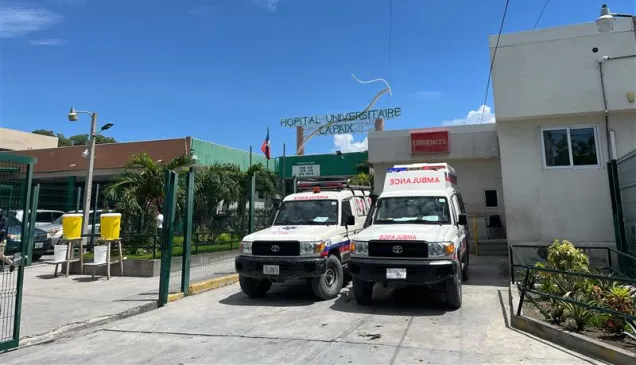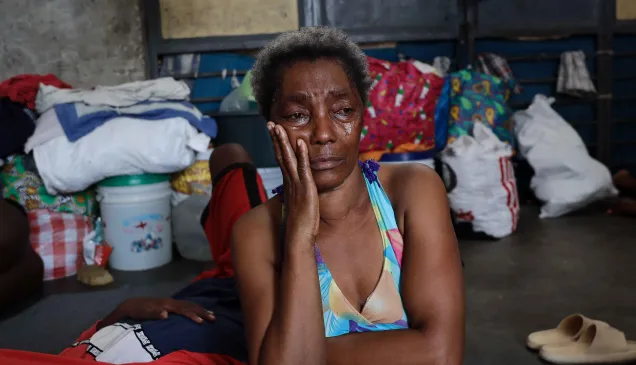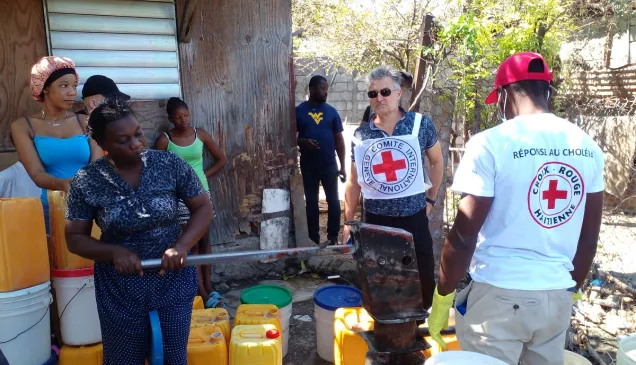Haiti: Influx of wounded patients exacerbates needs in hospitals
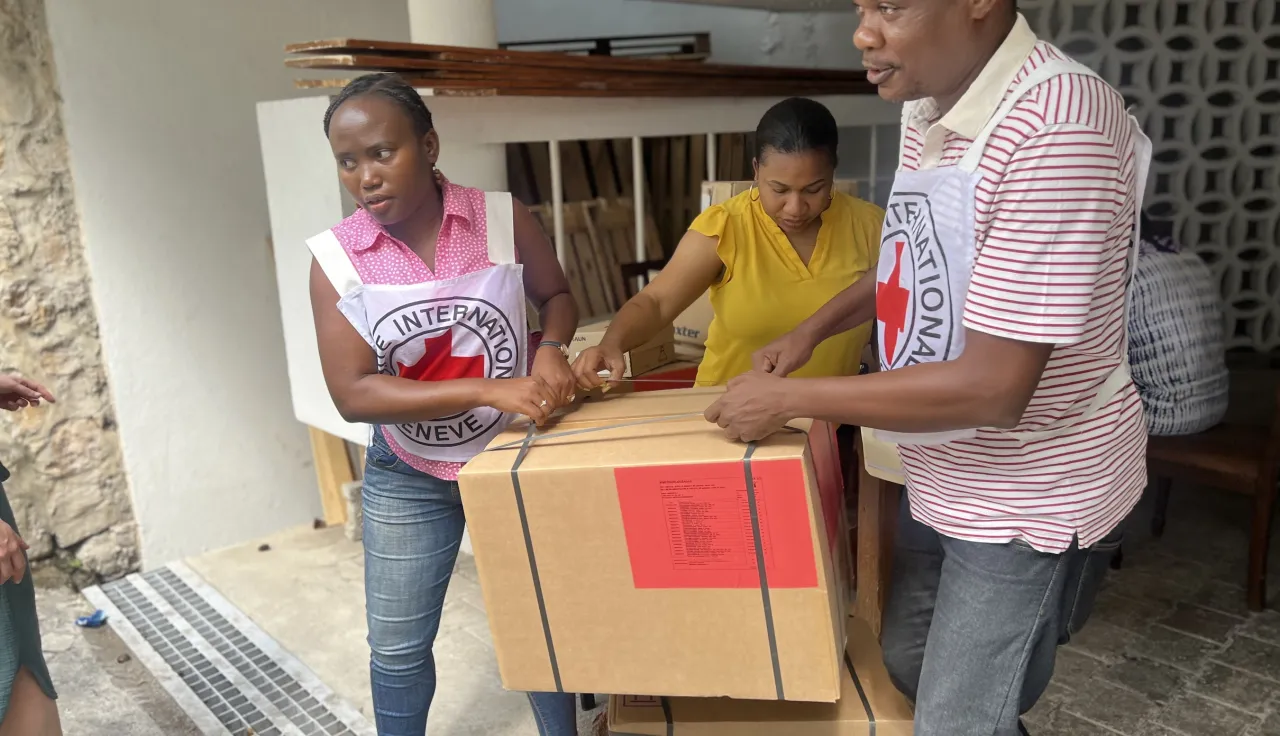
Port-au-Prince (ICRC) – A sharp increase in the number of wounded people has put enormous pressure on the few functioning hospitals in Haiti`s capital, Port-au-Prince, as they run dangerously low on medical supplies amid a flare up in armed violence. The International Committee of the Red Cross (ICRC) is taking necessary action to respond to their urgent needs and enhance people`s access to healthcare and other humanitarian services.
Some health facilities in the worst-hit areas are working under severe pressure due to increase in the number of patients and several others have been forced to close their doors due to insecurity. There is a stark shortage of medical supplies, including medicines, critical equipment, hospital beds and blood products.
“We receive a lot of patients with gunshot wounds. From 29 February to 15 April 2024, we received around 200 people with gunshot wounds. The hospital is currently saturated in terms of bed occupancy with enormous needs,” said Dr. Paul Junior Fontilus, Executive Director of Hôpital Universitaire la Paix (HUP), the only functioning public hospital in Port-au-Prince.
According to Dr. Fontilus, healthcare staff are making enormous sacrifices to help save the lives of Haitians trapped in the armed violence.
“We received a 15-year-old girl shot in the head. Before coming to HUP, the paramedics had taken her to several hospitals in search of treatment. She was in critical condition, and we did not have neurosurgery specialists. After much reflection, we finally received the patient. Her family was poor, so we contributed 300 US dollars to pay for her scan. We took the necessary steps for other specialists to operate on the little girl. The surgery was successful but, unfortunately, she died a few days later” he added.
Some healthcare staff are unable to go to their workplaces, leaving the few functioning hospitals to operate below their capacity. Patients with life-threatening medical conditions can no longer receive urgent care. Access to food, water and fuel is cut off in many communities with huge impact on the most vulnerable.
“We are witnessing an unprecedented humanitarian situation in 2024 that has soared since the armed violence escalated in late February. The terrible consequences of this can be seen in the enormous suffering of Haitians, particularly in the capital Port-au-Prince where several people have been killed, hundreds injured, and millions are in dire need of healthcare, clean water, food, and shelter,” said Marisela Silva Chau, the ICRC`s Head of Delegation in Haiti.
Just like the few hospitals that are operational, Hôpital Universitaire la Paix relies on support from partners to sustain its services but restrictions in movements due to insecurity and improvised roadblocks remain major obstacles to deliver urgent and desperately needed medical supplies.
“We urgently need fuel because we operate using generators, otherwise we run the risk of closing our doors. Supply in the market is very difficult. Our need for oxygen is constantly increasing due to the high number of patients we receive regularly. And we need blood supplies,” explained Dr. Fontilus.
In order to meet some of the vast and growing needs in Port-au-Prince, the ICRC recently provided dressing and surgical kits, personal protective equipment, sanipit and probiotic products to health facilities that include Hôpital Saint Camille, Hôpital Saint Luc, Hôpital Bernard Mevs, Hôpital Universitaire la Paix and Centre d'Observation Médicale Siloé in Belikou.
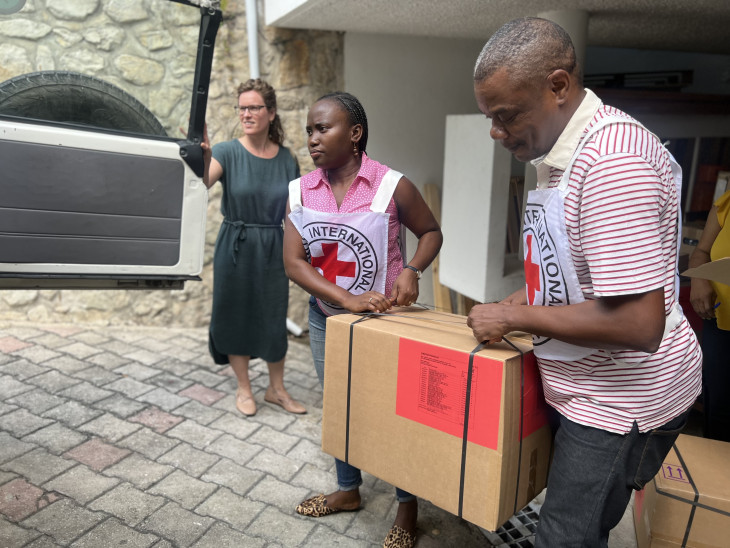
Since January 2024, ICRC’s efforts include:
- Supplied some 27 dressing sets and 6 surgical kits to treat about 1,700 wounded patients to 6 health facilities (MSF-France hospital, Hôpital Saint Camille, Hôpital Saint Luc, Hôpital Bernard Mevs, Hôpital Universitaire la Paix and Centre d'Observation Médicale Siloé in Belikou) and to community healthcare workers who received training in first aid.
- Provided 653,000 gallons of water to 52, 800 people through water-trucking activities at 5 sites for displaced people and in 14 other areas.
- Distributed hygiene products, tarpaulins, and solar lamps to over 2000 displaced people.
- Donated 360 kgs of Probiotic and 340 liters of Sanipit to 5 Hospitals (Hôpital Universitaire la Paix, Centre Hospitalier Fontaine, Hôpital Saint Luc, Bernard Mevs, Centre Hospitalier Foyer Saint Camille) together with Personal Protective Equipment to foster hygiene in those areas and reduce infections and nosocomial disease.
- Donated 3000 gallons of diesel fuel to Hôpital Universitaire la Paix to support its functioning due to frequent power cuts.
- Donated 100 mattresses to Médecins Sans Frontières (MSF).
- Trained 27 people from communities affected by armed violence in first aid and donated 8 first-aid bags.
- Trained 14 trainers from the National Ambulance Centre, Médecins Sans Frontières and the Haitian Red Cross ambulance service on violence de-escalation.
- Provided Personal Protective Equipment to 25 volunteers working for the Haitian Red Cross`s ambulance service.
- Supported the ambulance service of the Haitian Red Cross which has provided urgent care to 75 patients.
- Donated and installed two water tanks with a capacity of 1,700 gallons in two sites to increase storage capacity.
For more information, please contact:
Jude Fuhnwi, ICRC Port-au-Prince, +509 34 30 31 20, jfuhnwi@icrc.org

